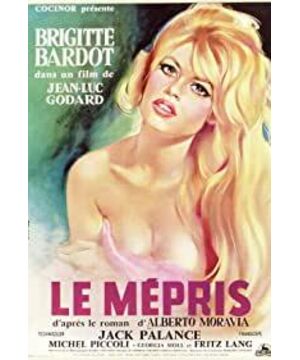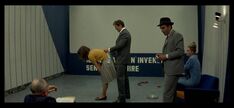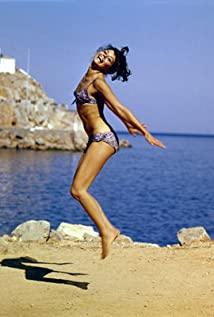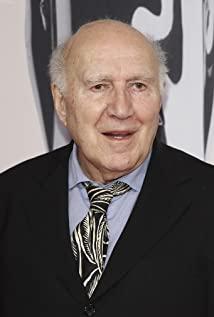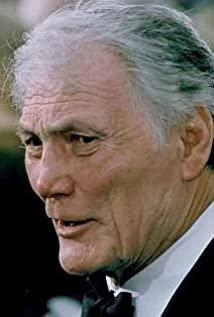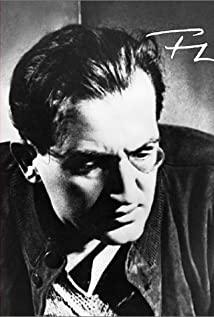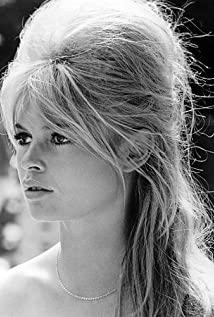reproduced in small broken baby drama Sina blog
early written in 2008
to commemorate the 50th anniversary of the French New Wave
"• Andre Bazin said: watching movies is through our review we The world of desire. "Contempt" tells the story about this world." - Quoted from the film "Contempt"
1963, French New Wave film director Jean-Luc Godard (Jean-Luc Godard) three feature films "The Soldier," "Carbine," and "Contempt," followed by "Super Liar" for the short film "The World's Most Famous Fraud." "Little Soldier" and "Carbine" are undoubtedly masterpieces representing the spirit of the New Wave, while "Contempt" (Le Mépris, English name Contempt) is a very Hollywood movie, although it has a gorgeous commercial packaging, it is also a A perfect expression of Dahl's mood at that moment. 45 years later, "Contempt" is often watched and new.
The screenplay of "Contempt" was adapted from the novel "The Ghost at Noon" (originally named Il Disprezzo in Italian, A Ghost at Noon in English, 1954) by the famous contemporary Italian writer Alberto Moravia (1907-1990). . The hero of the novel is despised by his wife because of his humble heart and behavior. When he finds that he and the world are sinking, he knows that people should not be like this, so he can't stand this contempt. On this basis, the film develops the structure of the story and the relationship between the characters, showing people's helpless, powerless, helpless, and meaningless living conditions. The story is very simple, American producer Brock Hugh (Jack Palance, Jack Palance) asked German director (Fritz Lang, Fritz Lang) to direct the adaptation of Homer's epic "Odyssey" film. However, Brockius was very dissatisfied with the artistic temperament of the script and the director, so he hired French screenwriter Paul (Michel Piccoli) to rewrite it, adding commercial elements. For $10,000, Paul agrees, and his wife Camille (Brigitte Bardot) begins to despise him. In the meantime, Paul left his beautiful and charming wife to Brockius, who is lecherous and shameless and believes that all women are unfaithful. After returning home, Paul began to investigate the relationship between his wife and Brockius. The husband's lack of self-confidence, betrayal of his soul, and improper relationship with the producer's female secretary made Camille contempt for him, and finally left him. Brockovich flew far away...
Godard used the layered structure of the play within the play to construct a multi-meaning system in an ordinary love story. The first story describes the life of the screenwriter Paul and his wife. The time is modern, that is, the narrative time of the film, which is synchronized with the actual time when Godard wrote "Contempt". The second story is the play-in-play part of the film. In the long history, the hero of Homer's epic has not returned for many years, and his wife has contempt for him. In fact, there is a broader level above this, that is Godard's situation at that time. The first two levels are fictional, and the third level is extraordinarily real. These three are interrelated and counterpoint to each other, forming an open and organic whole that continues to take on new meanings over time.
In the film Contempt, Paul's crisis begins at work, but it leads to the breakdown of his relationship with his wife. He had several chances to save his love and marriage, but he didn't seize it. On the surface, the wife Camille scorned her husband Paul for his disappointing performance again and again, and she took the initiative to cater to Brockius out of this contempt. The film contains a variety of contempt. American producers are completely ignorant of film and art, superstitious about money, and create capital myths. German director Lang was out of trouble because of the language barrier. The space where Paul, Camille, and Brockius are located can no longer accommodate three people. Some people think that the three of them correspond to Odysseus, Penelope, Poseidon (Odysseus, Penelope, Poseidon), and Godard respectively. , Karina, and publishers Joseph E. Levine (Godard, Anna Karina, Joseph E. Levine), Camille's black wig is reminiscent of Karina, and Paul represents Bardot's ex-husband Roger Vajim .
In the film, Godard, as always, questioned and criticized many fields such as film, society and history. To shoot this film, for him at least he is writing two kinds of history, one is the history that has been accepted and recognized and exists as history, that is, the ancient history of the drama within the play and Homer's epics; the other is the new history , including what happened in the present and the past, this new history is the rediscovery, supplement or rewriting of the previous history, sometimes it is incorporated into the original history, and sometimes it can only be dissociated from it.
This kind of historical concept is complicated and boring to say, but Godard used images to make it vivid and simple. In the gardens of Brockius' villa, for example, Camille anxiously asks why Paul was late, when there is a flashback of the scene where Paul drops her into Brockius' car a few moments earlier. Later, when Camille wanted to talk to Paul, he inserted a flashback again, which ended in the double shot of Paul and the female secretary, showing her inner activity at the moment, and her disappointment with him became stronger and stronger. She has drifted away in her mind. "The film involuntarily allows the intrusion of free images that examine and celebrate the semiotic priority of the figurative images that break apart the entire narrative. This is the flashback used in dealing with Brigitte Bardot's performance. montages of shots that seem to rerun the memory of the entire film (one can tell that these are shots that have been there), the memory of the filming (one can guess from those dailies), and the interplay between the plot and the picture. The logical relationship." Through the reproduction of those moments, the events that happened and people's memories of these events were emphasized.
The subject of the film is complex and heavy, but it is carried and expressed in a simple image, and the photographer Raoul Coutard has contributed greatly. He was an important cinematographer for French New Wave cinema and collaborated with Godard on several classic films. The first shot of the film is amazing. A film crew is shooting a long shot of the track, but the film uses a long shot with a fixed camera to capture the scene of the filming. When slowly turning to the real camera (the audience), the illusion of the audience is immediately broken, and they realize that what they are facing is just a movie, a fictional world, and themselves are the subject of the filming. Subvert easily. The reflexive effect of the media is very well expressed through this paragraph, which is clear, accurate, full and full of poetry. It just responds to the sentence quoted by Andre Bazin at the beginning of the film, which is very meaningful.
Contempt made us spend two days of our lives in Italy. When Paul walked on the spacious and silent streets of Cinecittà in Rome, he was a little leisurely and a little gloomy. As the book reviews say, Rome, this place is indeed related to a real center of the world...and the decline and decline of Rome is also true...Rome is one of the few key words that characterize human civilization. Among the few nostalgic crowds...then they moved to Casa Malaparte in Capri. Paul tapped the chest and privates of a female statue with his hands and said, intentionally or not, that they sounded different. The irresistible beauty of the sexy kitten Brigitte Bardot, combined with the beautiful scenery of the garden villa of American producer Brock Hugh and the charming scenery of Capri, together create a lingering mood. It is true that some people linger on the ruins that once stood proudly but disappeared without a trace, looking anxiously at the homeland of mankind... Now, only haggard and frustration, doubt and despair, hypocrisy and indifference, petty and cowardice are left.
Finally, Paul woke up to find Camille's breakup letter, and she had been riding away in Brockius' red Alfa Romeo sports car. Accompanied by the voiceover of Paul reading the letter, suddenly, the sports car rushed towards a large car, and Camille and Brockius, a dog and a man and a woman, both went to heaven. This scene was shot so plainly, and it gave a tragic ending soberly. The play within the play was also finished, Paul was bored and said goodbye to Lang, and the camera panned the beautiful scenery of the Mediterranean Sea.
Camille was naked, chatting with Paul in bed, and Godard photographed her nude with red and blue color filters successively, alienating the audience's imagination of the sexy goddess. Coincidentally, both the French and American flags have these colors. The overlapping of mirror images suppresses the audience's desire for her body and destroys the so-called visual pleasure produced by the desire to watch. Godard once again responded to Bazin's description of the film with images. This is perhaps the most evocative love passage on the film. However, while it is difficult for the audience to imagine her body, they can focus on her beauty, becoming a little serious as their lovers babble.
Brigitte Bardot made her first public appearance on the set, in the form of Pingting. Her blond hair, under the bright sunshine, makes people feel close and warm, and all the unpleasantness brought by Paul is like the dark part in the blond hair, but the darkness will not reduce her brilliance, but it will bring out the woman created by God. lasting charm. In addition, as Godard put it, Moravia's novel "is full of classical, old-fashioned emotions, even if the context is completely modern." Although the scenes in the film are the lives of several modern people, the emotions depicted in them Still classic. All of this will make the audience get carried away for a while, fascinated by the protagonist's afternoon in Rome and the morning in Capri, Brigitte Bardot's sexy style and the natural scenery, Beautiful and timeless.
Composer Georges Delerue's score is calm and powerful, with heavy strings playing the theme soothing and restrained, solemn and melody like Johann Sebastian Bach's famous "Suite for Unaccompanied Cello". This theme music renders a strong tragic atmosphere for the film, in which praise, reminiscence and remembrance are intertwined. The audience and the hero and heroine's thoughts are closely connected, and they can experience that emotional experience and mental journey together. From an emotional point of view, the attitude of life is very modern, and it can still resonate to this day. Seeing the stories of Paul and Camille, although ordinary and unremarkable, is deeply touching. In the face of life and history, the two are so cute and absurd. The theme music, which first appears in the film, is when Paul and his wife Camille travel separately to the manor house in Brockius. Love expresses the hardships of making a film, and also reflects the difficult situation of French films in front of American films at that time. The French version of the film maintains a multilingual dialogue, with French, English, Italian, and German intertwined, and the American and Italian versions are dubbed in English and Italian, respectively. The French and American versions are similar in editing, but the Italian version is only 82 minutes long, and Dereux's score is replaced by Piero Piccioni's jazz. pity. But it is also historically true.
When it comes to the soundtrack of "Contempt", the author would like to make a few digressions. I once watched a biopic of world supermodel Carla Bruni (the girlfriend and current wife of French President Nicolas Sarkozy), She went through ups and downs, and finally achieved a brilliant fashion career. After many setbacks in her relationship, she finally had her sustenance and became a good story in the fashion industry. In the last section of the documentary, on the hills in her hometown, Carla walked on a mountain path surrounded by green cypresses, enjoying herself in the wind. At this time, the music is gradually rising, which is exactly the theme of "Contempt". The music and the picture are in contrast to each other. In a set of close-up shots, Carla shows a touch of sadness in the relief, which is both pleasant and depressing. At this time, not only the tone of the picture is like "Contempt", but its artistic conception echoes with Godard's film, which naturally forms a wonderful intertextual effect.
The famous German film director Fritz Lang played a European director with a very gentlemanly demeanor from beginning to end in the film, a respectable elder and wise man. He has a clear mind, he knows everything that is happening in front of him, and he takes it with equanimity. He has a tradition of his own, and is able to defend it staunchly in the face of the commercial films that Brockius represents, in stark contrast to Paul's relatively weak stance. Godard used this to express his respect for Fritz Lang's generation of directors. Not only did Yu Lang play the director, but also in terms of video style, such as the symmetrical composition of the roof of Capri Villa, which was obviously influenced by Lang's film. . The conversation between Lang and Godard was actually Godard's questioning sentence, which revealed the topics he cared about. Compared with Godard's other films, "Contempt" seems very conventional. Nevertheless, the film is full of his anger and struggle against major issues such as film commercialization and consumer society from beginning to end, expressing a keen insight into reality. with deep thinking. Under the packaging of a commercial film, "Contempt" contains the characteristics of an art film, and everywhere people feel a kind of Godard-style gaze, quick thinking, sharp expression and broad mind, although there are setbacks from time to time, but Talk and laugh.
1) "Contempt", written by Jean-Luc Godard, translated by Shan Wanli, "World Cinema", No. 6, 1996, China Film Publishing House
2) "The Visualized Film - Commentary on Godard's Film "Contempt", (French) Niblane, translated by Shan Wanli, World Cinema, No. 6, 1996, China Film Publishing House
View more about Contempt reviews


